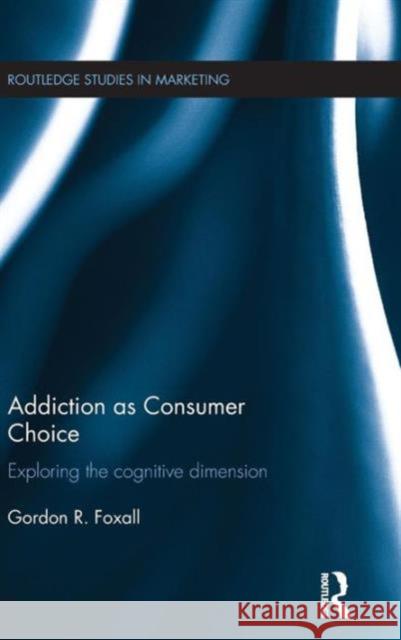Addiction as Consumer Choice: Exploring the Cognitive Dimension » książka
Addiction as Consumer Choice: Exploring the Cognitive Dimension
ISBN-13: 9780415703208 / Angielski / Twarda / 2016 / 222 str.
Addiction as Consumer Choice: Exploring the Cognitive Dimension
ISBN-13: 9780415703208 / Angielski / Twarda / 2016 / 222 str.
(netto: 743,28 VAT: 5%)
Najniższa cena z 30 dni: 705,23
ok. 16-18 dni roboczych.
Darmowa dostawa!
A striking characteristic of addictive behavior is the pursuit of immediate reward at the risk of longer-term detrimental outcomes. It is typically accompanied by the expression of a strong desire to cease from or at least control consumption that has such consequences, followed by lapse, further resolution, relapse, and so on. Understood in this way, addiction includes substance abuse as well as behavioral compulsions like excessive gambling or even uncontrollable shopping. Behavioral economics and neurophysiology provide well-worn paths to understanding this behavior and this book regards them as central components of this quest. However, the specific question it seeks to answer is, What part does cognition - the desires we pursue and the beliefs we have about how to accomplish them - play in explaining addictive behavior? The answer is sought in a methodology that indicates why and where cognitive explanation is necessary, the form it should take, and the outcomes of employing it to understand addiction. It applies the Behavioral Perspective Model (BPM) of consumer choice, a tried and tested theory of more routine consumption, ranging from everyday product and brand choice, through credit purchasing and environmental despoliation, to the more extreme aspects of consumption represented by compulsion and addiction. The book will advance debate among behavioral scientists, cognitive psychologists, and other professionals about the nature of economic and social behavior.











